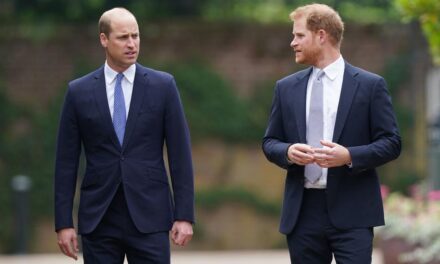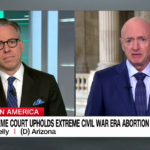
2020 Election Live Updates: Biden vs. Trump

President Trump, who has exited the Paris Agreement, loosened restrictions on toxic air pollution, rolled back clean water protections and removed climate change from a list of national security threats, on Tuesday stood in front of supporters in Jupiter, Fla., and declared himself “a great environmentalist.”
Mr. Trump was speaking at an official presidential event, where he endorsed a 10-year moratorium on oil and gas drilling off the state’s coastline as well as the Georgia and South Carolina coasts — a feat of political jujitsu, since his administration is the one that proposed lifting the moratorium.
(In 2018, the Trump administration only dropped Florida from a list of places where it wanted to lift a moratorium on all offshore oil drilling after strong opposition from the state’s Republican governor at the time, Rick Scott.)
But his appearance in the battleground state he has adopted as his own, where recent polls show him deadlocked with his Democratic rival, Joseph R. Biden Jr., also doubled as a campaign stop. It was also an extraordinary attempt to recast his environmental record in a state battered by hurricanes and coastal flooding, where voters of both parties express widespread concern about climate change.
Standing behind a podium with a presidential seal, Mr. Trump claimed, with no evidence, that electing Mr. Biden would leave the environment “permanently injured.”
“The left’s agenda isn’t about protecting the environment,” he claimed. “It is about punishing America.”
There are few other policy arenas where a rewrite of the last three and a half years could be so jarring. His portrayal of his administration’s response to the coronavirus has at times strained credulity. His claims of a legislative record second to no other president have been greeted by scoffs. He has said repeatedly that he has done more for Black Americans than any president, except perhaps Abraham Lincoln.
But the environment is in a category on its own, because in claiming the mantle of environmentalism, he is in fact repudiating one of his administration’s undeniable accomplishments: the stunning roll back in one presidential administration of environmental regulations that go back decades.
Mr. Trump has called climate change a hoax, weakened oversight of drilling in federal waters, opened up the Arctic National Wildlife Refuge to oil and gas companies and moved to repeal about 100 environmental regulations.
Yet on Tuesday, he congratulated his administration for what he called “our incredible record of natural conservation and environmental protection.”

President Trump and former Vice President Joseph R. Biden Jr. are tied in the perennially close state of Florida, according to an NBC News/Marist poll released Tuesday, and there were signs that some of the state’s old alliances were shifting.
Both Trump and Biden had the support of 48 percent of likely voters according to the poll, which had a margin of error of plus or minus 4.5 percentage points. It was released on a day that Mr. Trump traveled to Florida, now his home state, to court voters.
But if the poll’s top line seemed familiar — Florida has come to define close presidential elections at least since the contested 2000 race between George W. Bush and Al Gore — the poll suggested that the sources of each candidate’s support were evolving this year.
The candidates are virtually tied among likely voters 65 and older, with Mr. Biden edging out Mr. Trump by 49 percent to 48 percent, it found. That was a big shift from four years ago, when Mr. Trump won a majority of the age group in Florida, according to exit polls. The candidates were tied among likely voters under 45, the poll found. Four years ago Hillary Clinton carried young voters in the state by double digits, according to exit polls.
In another major shift, the poll found Mr. Trump was narrowly leading Mr. Biden among likely Latino voters, by 50 percent to 46 percent. Mrs. Clinton won among Latino voters in Florida four years ago by 62 percent to 35 percent, according to exit polls.
Video

transcript
transcript
Trump: ‘Whatever It Takes. We Have to Win’
President Trump told reporters on Tuesday that he was willing to use his own money to fund his re-election campaign.
-
Great job numbers — you see what’s happening with respect to the economy. Vaccine is looking very good for pretty soon. We’ll be talking about that a little bit later on. We have much more money than we had last time, going into the last two months. I think double and triple. But if we needed any more, I’d put it up personally, like I did in the primaries last time. In the 2016 primaries I put up a lot of money. If I have to, I’ll do it here. But we don’t have to because we have double and maybe even triple what we had a number of years ago, four years ago. How much are you talking about putting into your campaign? Whatever it takes. We have to win. This is the most important election in the history of our country.

President Trump said on Tuesday he was considering putting his own money into the 2020 campaign — “If I have to, I will,” he said — as his campaign manager did not dispute a report that his campaign is facing a cash crunch.
Of the $1.1 billon his campaign and the party raised from the beginning of 2019 through July, more than $800 million has already been spent. Now some people inside the campaign are forecasting what was once unthinkable: a cash crunch with less than 60 days until the election, according to Republican officials briefed on the matter.
Mr. Trump put more than $50 million into his 2016 primary run but declined to fund his campaign in the general election. He has not put any of his own funds into his 2020 campaign so far.
“Whatever it takes, we have to win,” Mr. Trump told reporters as he prepared to depart on a trip to Florida.
He later wrote on Twitter that he did not expect to need to put in his own money, writing “If more money is needed, which I doubt it will be, I will put it up!”
….Like I did in the 2016 Primaries, if more money is needed, which I doubt it will be, I will put it up!
— Donald J. Trump (@realDonaldTrump) September 8, 2020
After The New York Times reported that the Trump campaign had lost its financial advantage due to profligate spending, Bill Stepien, who took over as campaign manager in July, did not deny that the campaign was facing a cash crunch in a strategy call with reporters on Tuesday.
“If money was the only factor determining winners and losers in politics, Jeb Bush would have been the nominee in 2016. And we’d have a second President Clinton right now in the Oval Office,” Mr. Stepien said. “Reminder,” he added, “Candidate Trump was outspent $1.2 billion-$646 million in 2016. So just keep that in the back of your minds.”
Mr. Stepien emphasized that the Trump campaign had far more money on hand than in 2016.
”We are now carefully managing the budget,” he said, something he called among “the most important tasks for any campaign manager. Creating or recreating the budget was the first thing that I did upon becoming the campaign manager and it’s something that we, as a team, manage every single day.”
Mr. Stepien has imposed a series of changes that affected staff travel, hiring and the ad budget, as the Trump campaign sharply reduced its television ad buy in late August.
He said that the campaign’s early spending on field programs was not something the Democrats could match. “Our early investment in states is going to move the needle in a way that Joe Biden’s campaign just can’t do, even if they tried starting now,” Mr. Stepien said.

After almost entirely avoiding air travel for the last six months and ceding the opportunity to campaign in far-flung swing states, Joseph R. Biden Jr., the Democratic presidential nominee, and his running mate, Senator Kamala Harris, will be traversing the map this week in a manner vaguely reminiscent of a normal presidential campaign.
Mr. Biden is due in Michigan on Wednesday, while Ms. Harris will be campaigning on Thursday in Florida. And Jill Biden, the former second lady, will visit Minnesota — a blue-tinted state that President Trump barely lost in 2016.
Of course, their activities on the ground are unlikely to look much like a traditional presidential race, judging by their travels so far. When Mr. Biden visited Pennsylvania on Labor Day, his activities were limited to a socially distanced meeting with workers in a backyard and a virtual town hall hosted from the Harrisburg headquarters of the state A.F.L.-C.I.O. Ms. Harris kept a similarly restrained itinerary in her Monday trip to Milwaukee.
Still, that they are hitting the road at all represents a significant shift in their joint posture — a welcome one for swing-state Democrats who worry that voters are growing impatient with Mr. Biden’s abstemious approach to the trail.
The Republican ticket will be no less active this week, though for Mr. Trump and Vice President Mike Pence that is not a departure from the norm. Their campaign has been behaving for some time as though the coronavirus is a fading consideration, holding rallies at airport hangars where social distancing and mask-wearing are hardly the rule.
Mr. Trump starts his week Tuesday visiting Florida and North Carolina and ends it Saturday in Nevada, another state he lost by a small margin in 2016.
In some respects, the mode of campaigning is the message for both tickets: The Democrats have made Mr. Trump’s mishandling of the coronavirus the central theme of their general-election campaign, while Mr. Trump and Mr. Pence have been promising the pandemic will soon be a thing of the past.
But as always, the political subject of the week remains a question mark until Mr. Trump next speaks. Few in either party expected to spend the end of last week addressing allegations that the president had derided American war dead, and about as many could have predicted that his Labor Day message would include a sharp swipe at Pentagon leaders for allegedly being in league with the arms industry.

President Trump is using a fear-based playbook that is as familiar to him as it is questionable that it actually helped elect Republicans in recent years.
He is once again targeting suburban communities with claims that the Democrats won’t keep them safe, and even reusing phrases and imagery from the 2018 midterm elections, including slogans like “jobs not mobs” and ads showing Democratic politicians and liberal figures kneeling during the national anthem. In place of the MS-13 gang members and migrant caravans he warned of two years ago he now speaks of rioters and looters, but the aim and themes are substantially the same.
Democrats can point to the 41 House seats they picked up in 2018 to show that the Republican strategy did not work then, when voters were more concerned about health care than havoc. Even Republicans say there is no solid evidence in their polling that proves the president’s tactics are helping him today.
But behind their confidence, Democrats acknowledge a real risk that Mr. Trump and Republicans could benefit if they succeed in casting the former Vice President Joseph R. Biden Jr. and the Democratic Party as indifferent to the violence and unrest that has shaken cities across the country, especially in the Midwestern suburbs in Wisconsin and Minnesota where it is not so distant and abstract.
Republican strategists said their research showed a vulnerability for Mr. Biden with swing voters: the belief, advanced frequently and misleadingly by Mr. Trump, that Mr. Biden is overly susceptible to influence from the far left.
What followed was some of the bleakest and dystopian messaging of the campaign so far, with Trump campaign ads featuring fictitious unanswered calls to 911 because of cuts to public safety. An ad that went out in July shows a man prying open the door to an elderly woman’s home with a crowbar. When she reaches 911, a recording tells her, “Leave a message and we’ll get back to you as soon as we can.”
Ad Watch
The Trump campaign has inserted one of the country’s greatest hopes for overcoming the coronavirus pandemic — the push to develop an effective vaccine — into the presidential race with its latest campaign ad.
The Message
For months, the Trump campaign has struggled to lock in a cohesive message on the pandemic. After the administration downplayed and bungled the early response to the coronavirus, there has been little success for President Trump to tout in his re-election campaign.
So his campaign is trading instead on a hope for a vaccine, and a promise to rebuild the economy.
The ad opens with the camera panning across bottles labeled “COVID-19 Coronavirus Vaccine” while a narrator claims that “the finish line is approaching” for a vaccine. That is quickly followed by a promise to bring back “the greatest economy the world has ever seen,” a promise that hinges more on the president’s hope than on any tangible plans or platforms that he has released.
The ad attempts to draw a contrast between Mr. Trump’s pledge to rebuild the economy and remarks from Joseph R. Biden Jr., using a selectively edited clip that shows Mr. Biden saying he would “shut it down.” (The clip comes from an interview in which Mr. Biden said he would only shut down the country again if scientists recommended doing so.)
The ad fits into a broader arc that the Trump campaign is trying to sell: a pitch that the worst of the coronavirus is behind the country, and that the president is the best candidate to rebuild the economy.
Fact Check
The ad claims that the “finish line is approaching” for a vaccine. Earlier this month, the C.D.C. notified public health officials that they should prepare to begin distributing a coronavirus vaccine to some high-risk groups as soon as late October or early November. But Dr. Moncef Slaoui, the top scientist on Operation Warp Speed, recently warned in an interview with National Public Radio that the chance of successful vaccine results by October was “very, very low.” Health officials have also raised concerns that the Trump administration is seeking to rush a vaccine before Election Day on Nov. 3.
The ad boasts about adding 1.37 million jobs in August, but that was down from the gains in the three previous months, and included the hiring of nearly a quarter-million temporary census workers.
And Mr. Biden does not plan to shut the country down. He said that he would only do so, if elected, if scientists and health experts told him it was necessary.
Where It’s Running
The ad is currently running in five battleground states: Florida, North Carolina, Georgia, Wisconsin and Michigan. More may be added in the coming days.
The Takeaway
While the most vocal message out of the Trump campaign has been a strident stoking of racial divisions amid the protests against racism and police brutality around the country, the new ad is a recognition that the president’s re-election bid cannot simply ignore the coronavirus pandemic, particularly as many polls find the virus to still be the top concern of voters around the country.

As the presidential campaign entered the post-Labor Day sprint to the finish line, President Trump returned to a familiar theme this week: minimizing the threat posed by the coronavirus, sometimes in ways that contradict the advice of federal health authorities.
Mr. Trump took to Twitter on Tuesday morning to insist that “New York City must stop the Shutdown now” and then to claim that virus restrictions in other states were “only being done to hurt the economy prior to the most important election, perhaps, in our history.”
A day earlier he criticized a reporter for wearing a mask at a White House news conference, despite guidance from the Centers for Disease Control and Prevention that “everyone should wear a mask in public settings and when around people who don’t live in your household.”
It was part of a familiar pattern for Mr. Trump, who back in March began pushing for states to reopen by Easter, on April 12. (More than 160,000 people have died of the coronavirus in the United States since Easter, according to a New York Times database.) In mid-April Mr. Trump sided with protesters who were chafing at virus restrictions, calling to “LIBERATE” several states including Minnesota and Virginia, which both saw cases rise in subsequent weeks. And in June he held an in-person campaign rally in Tulsa, Okla., which local health officials said likely contributed to more cases there.
The outbreak in the United States is one of the worst in the world: it has the most reported total cases, more 6.3 million, and the most reported deaths, more than 189,000, according to a New York Times database. And it has lagged other wealthy nations when it has come to taming the virus.
Mr. Trump, who rarely wears masks, made fun of his Democratic opponent, Joseph R. Biden Jr., last week for wearing one, suggesting that it stemmed from a psychological need to feel safe. At a White House news conference on Monday, he asked a reporter, Jeff Mason of Reuters, to take his mask off as he asked a question.
Mr. Mason kept his mask on. “I’ll speak a lot louder,” he said.
A little later, another reporter took his mask off to ask Mr. Trump a question, pleasing the president. “You sound so clear, as opposed to everybody else where they refuse,” he said.

The top election official in Ohio is warning that the state, a key pathway to the presidency over the decades, could be hanging in the balance for several weeks while absentee ballots are counted.
Frank LaRose, the Republican secretary of state, said during a news conference on Tuesday that there would probably be hundreds of thousands of absentee ballots that will not have been counted by Election Day on Nov. 3.
Absentee ballots, which a large number of voters are expected to make use of this year because of the coronavirus pandemic, can trickle into county election boards in Ohio for up to 10 days after the election under a state law. They have to be postmarked by Election Day.
“The numbers will change between election night and the final certification,” Mr. LaRose said. “That’s not a sign of something nefarious happening. In fact, quite the contrary. It’s a sign that the system is working as it’s supposed to.”
In Ohio, absentee ballot request forms have been sent to all 7.8 million registered voters in the state, according to Mr. Rose, whose office is seeking budgetary approval to spend $3 million it has collected in fees to pay for the return postage for the ballots. The first ballots will be mailed on Oct. 6.
Election officials plan to report the number of outstanding absentee ballots on election night, Mr. LaRose said. But he acknowledged that it could be a “nightmare scenario” if the Trump or Biden campaigns declared victory in Ohio based on unofficial results that showed them with a narrow lead.
“We’ve gotten very accustomed to sort of knowing who’s going to be the next president before we go to bed on election night,” Mr. LaRose said. “That may not be the case this year.”

He has represented the husband of one of the Real Housewives of Beverly Hills, the licensing company behind the pizza rat viral video and a slew of clients that run afoul of liberal sensibilities — from drug makers and arms dealers to Walmart.
Now Douglas Emhoff could potentially represent the United States as its first Second Gentleman, as his wife, Senator Kamala Harris of California, campaigns as the running mate of former Vice President Joseph R. Biden Jr., the Democratic presidential nominee.
While Mr. Emhoff’s fund-raising prowess and connections in the legal community in both Washington and Los Angeles were seen as strengths when Ms. Harris was challenging Mr. Biden for the presidential nomination, they loomed as a potential liability once Mr. Biden added her to the ticket. Late last month, Mr. Emhoff announced that he was taking a leave of absence from DLA Piper, one of the world’s largest law firms, where he is a partner.
It remains unclear whether Mr. Emhoff will continue to practice law in any capacity, but keeping a connection to a firm with a thriving Washington lobbying practice and offices in places like Moscow and Riyadh, the Saudi capital, could prove problematic.
Working for clients who are entitled to legal representation is distinct from the type of conflicts of interest that have proliferated in Mr. Trump’s Washington. The administration and its associates have routinely used their positions to promote and steer money to the Trumps’ Washington hotel and other entities they own, drawing condemnation from watchdog groups and the Office of Government Ethics.
Even so, if Mr. Emhoff maintains his DLA partnership or continues practicing law elsewhere, it could complicate efforts by Mr. Biden and Ms. Harris to distinguish themselves from the Trump Administration’s practices.
During his decade as a lawyer at the corporate firm Venable, Mr. Emhoff represented the pharmaceutical giant Merck in lawsuits tied to its drug Fosamax; the arms dealer Dolarian Capital in a case related to its sale of AK-47s for use in Afghanistan; and a nightclub owner accused of sexual harassment and sexual battery.
Mr. Emhoff left Venable in 2017 for DLA Piper, where he has less of a track record. Though he is not personally registered to lobby, ethics experts flagged the firm’s lobbying practice — which in addition to defense contractors and telecommunications companies includes countries with checkered human rights records like Afghanistan and Bahrain.
Video

transcript
transcript
Georgia Finds ‘Potentially 1,000 Cases’ of Double Voting
Brad Raffensperger, Georgia’s secretary of state, said investigations were underway after the authorities discovered some people voted twice in the June primary and August run-off elections.
-
We have found some potential double voting in our state, which is unacceptable. In both June’s emerged primary and August runoff, we have found potentially 1,000 cases of double voting here in Georgia. Let me clear, let me be clear. It is a felony to double vote in Georgia and we prosecute. My office is dedicated, working with counties to assure that it won’t happen in November or in the future. A double voter knows exactly what they are doing, diluting the votes of each and every voter that followed that that follows the law. Those that make the choice to game the system are breaking the law. And as Secretary of State, I will not tolerate it.

The authorities in Georgia are threatening criminal action against 1,000 voters in Georgia who voted twice this year — once by mail and once in person at polling places.
Brad Raffensperger, the Georgia secretary of state, held a news conference Tuesday to announce that investigations were under way in 100 of the state’s 159 counties following the discovery of 1,000 instances of double voting in the state’s June primary and August run-off elections.
“We will prosecute,” said Mr. Raffensperger, a Republican, noting that double voting in Georgia carries a penalty of one to 10 years in prison and a fine of up to $100,000. He noted that double-voting hadn’t changed the outcome of any races.
The scenario Mr. Raffensperger described appeared to be identical to the one suggested by President Trump last week, when he told reporters in North Carolina that voters should test the integrity of the election system by voting by mail and then subsequently appearing at the polls in person.
Safeguards are supposed to flag such discrepancies so that double votes aren’t counted.
Elections officials nationwide said that Mr. Trump’s comments had created confusion among voters in an already stressful election year.
It was not clear how many of the 1,000 instances of double voting were intentional efforts to vote twice and how many were done by people who had submitted an absentee ballot but did not know whether it had arrived and been counted.
“At the end of the day, the voter was responsible and the voters know what they were doing,” Mr. Raffensperger said. “A double voter knows exactly what they were doing, diluting the votes of each and every voter that follows the law.”

Gov. Andrew M. Cuomo said officials would place hundreds of drop boxes for absentee ballots at voting sites around New York, adopting a method already in practice in other states.
The decision comes on the heels of another by Mr. Cuomo to sign a bill to allow voters to request absentee ballots for the November election if they fear contracting or spreading an illness, a harsh reality in a state that continues to rebound from a spring surge of the coronavirus, which killed more than 30,000 people in New York. Absentee ballots can also be requested online.
The new executive order would permit voters to drop ballots at early voting sites during a nine-day period, from Oct. 24 to Nov. 1, before the Nov. 3 election. Such ballots can also be dropped at county Board of Elections offices immediately, and at in-person polling sites on Election Day.
New York was widely criticized by Republicans, including President Trump, for its handling of the June primary, when there were tens of thousands of disqualified ballots and weeks of delays before official results were announced in some races. Election officials attributed the problems to a record number of absentee ballots as voters sought to avoid crowds — and possible infection — at polling sites.
New York had long lagged behind other states in voting reforms before a successful push for changes by Democratic lawmakers last year. And since the June primary and its problems, a number of other changes have been passed, as Mr. Cuomo has also used executive orders to try to address increase staffing and voter awareness.
“We want fair voting, we want easy voting,” Mr. Cuomo said on Tuesday. “And we want accurate voting.”

New Hampshire primary voters are casting ballots on Tuesday in contests that test the power of President Trump’s endorsement and, on the Democratic side, resemble other recent primaries that have revealed the staying power of the Bernie Sanders wing of the party.
In the Republican Senate primary, Mr. Trump endorsed Corky Messner, a wealthy lawyer who moved full-time to the state from Denver only in 2018 and has fought off accusations of carpetbagging. Mr. Messner led his rival, Don Bolduc, a retired Army general, by a healthy margin in a Granite State Poll last week.
The primary winner will almost certainly take on Senator Jeanne Shaheen, a Democratic former governor and two-term incumbent, who in the same poll, conducted by the University of New Hampshire Survey Center, held more than a 15-percentage-point lead in matchups with both Republican rivals.
The second most closely watched race is the Democratic primary for governor. Dan Feltes, the State Senate majority leader, is in a tight race with Andru Volinsky, a lawyer and education activist who was endorsed by Mr. Sanders, the Vermont senator. The support of Mr. Sanders, who won New Hampshire’s presidential primary in February, has helped rally progressive voters in a contest that has been little noticed compared with other face-offs this year between the Democratic left wing and the party establishment.
Mr. Volinsky broke with New Hampshire Democratic tradition and refused to take “the pledge,” a promise not to introduce sales or state income taxes. “We are the last Bernie candidate standing,” said Irene Lin, Mr. Volinsky’s campaign manager.
Despite being outspent by Mr. Feltes, Mr. Volinsky had a slight two-point lead in the Granite State Poll, within the margin of error.
But again, the primary winner is likely to face a popular incumbent, Gov. Chris Sununu, a Republican. Largely driven by his response to the coronavirus outbreak, Mr. Sununu’s stock has risen all year; he now has the approval of seven in 10 New Hampshire voters.

Sarah Huckabee Sanders, the former White House press secretary, jumped to President Trump’s defense as the administration has tried to cast doubt on a damning report in The Atlantic that Mr. Trump had privately referred to American troops killed in combat as “losers” and “suckers.”
In a video she posted online that had 3.4 million views by Tuesday afternoon, Ms. Sanders claimed, “I’ve also sat in the room when the president had to make the most difficult calls of his presidency: when he had to let a parent know that their son had been killed in the line of duty.”
“That’s a call no president wants to make,” she said. “In those moments, I saw the president’s heart. And I also saw his commitment to the men and women of our great military.”
In fact, that’s not a call that any president ever makes.
The news of a death is never delivered on the phone.
Each branch of the military has its own protocols for notifying next of kin, but all require a field grade officer of equal or higher grade than the member whose death they are notifying to do so in person. A chaplain or medical personnel is also expected to attend, in person, if possible, but notification is expected to be completed within eight hours of learning about the casualty.
Ms. Sanders said in a text message on Tuesday that the calls she was referring to in the video were condolence calls, not notification calls.
She also spoke about watching the president make notification calls during an interview on “Good Morning America” on Tuesday, where she appeared as part of her national book tour for a new memoir, “Speaking for Myself.”
“I sat with him in the Oval Office as he had to make that awful call to let a parent know that their son had been killed in Afghanistan,” she said. After the anchor, George Stephanopoulos, asked for a clarification she said that she meant to say “a condolence call after that individual had been notified.” Ms. Sanders, a Fox News contributor, is considering a run for governor of her home state of Arkansas in 2023.
During her tenure as press secretary, Ms. Sanders admitted to investigators that she made a false statement in the White House briefing room when she claimed she had personally heard from “countless” rank-and-file F.B.I. agents who had lost confidence in James Comey, the former F.B.I. director fired by the president. A footnote in the Mueller Report, however, said that she recalled that the statement was made in the “heat of the moment” and was “not founded on anything.”

















